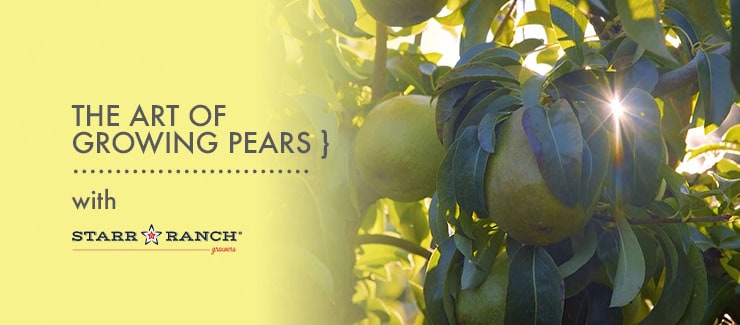
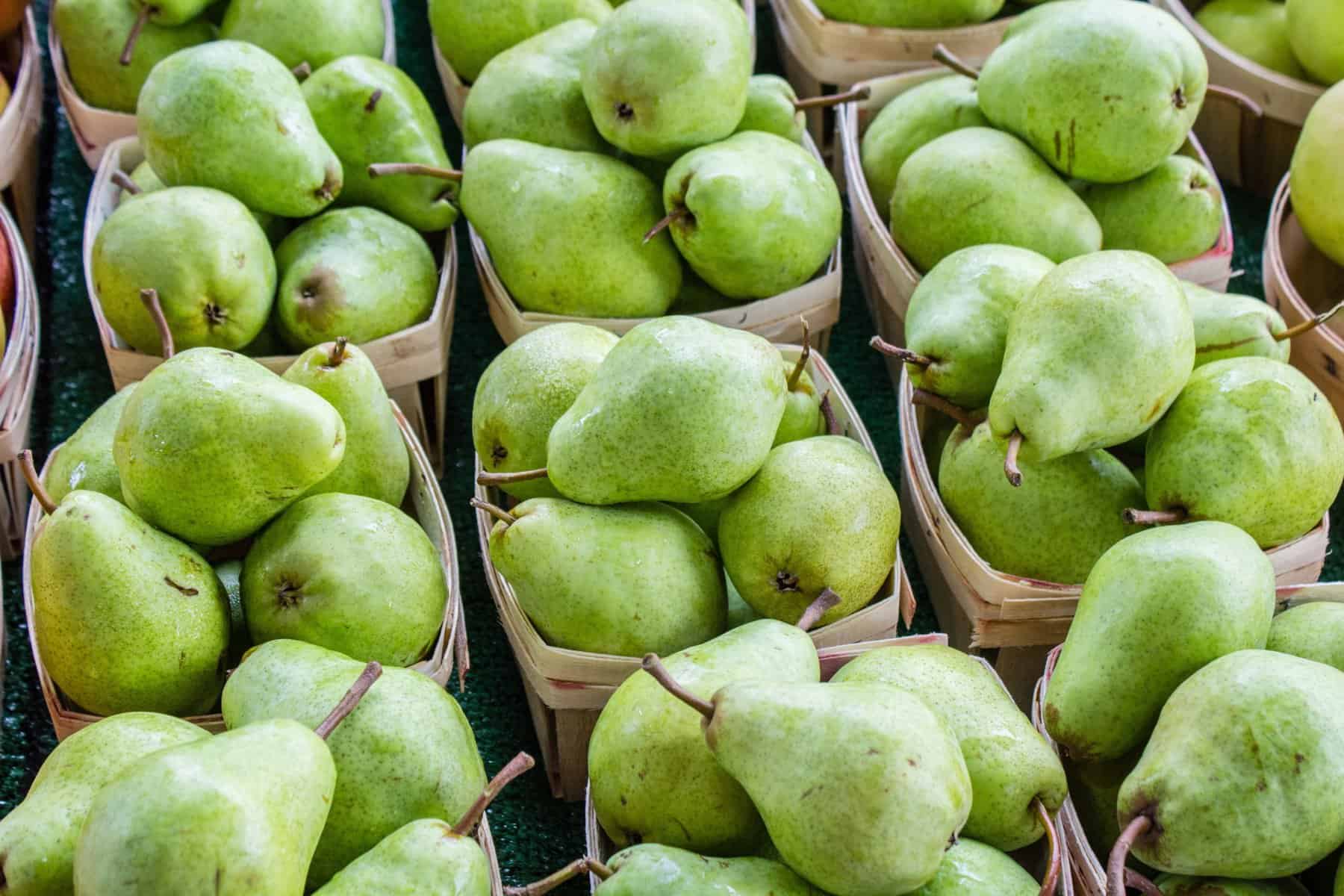
Whenever you see a piece of farm fresh food at the grocery store, you're not often thinking about the very long journey it's taken to get there. Before the fruit is ripe and ready for you to purchase, growers spend years planning, planting, growing, breeding, testing, and harvesting fruit so you have the best experience when eating that piece of fruit. This time of year it's all about the pear! Here's a little behind-the-scenes look at exactly how these delicious fruits from Starr Ranch Growers make their way to your store shelves.
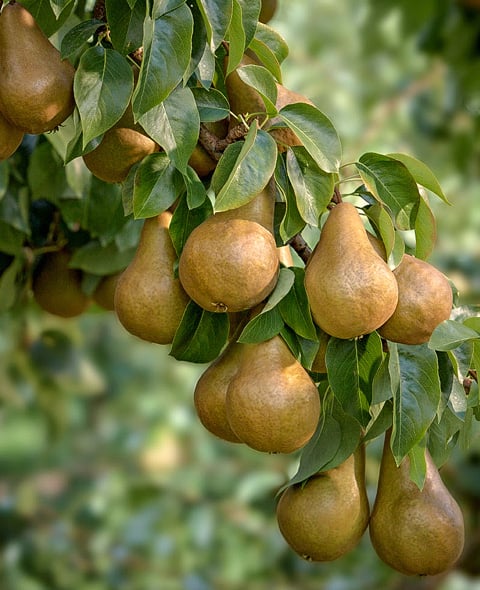
Photo Courtesy of Starr Ranch Growers
A number of years ago, Starr Ranch Growers began a partnership with Diamond Fruit, one of the country’s oldest cooperatives that proudly represents more than one hundred pear and cherry orchardists. These family-owned orchards encompass over 6,000 acres of the Hood River Valley – a vast and fertile area that spans from the foot of Mount Hood to the banks of the Columbia River. Growing winter pears requires cold nights and warm days which is exactly what this regions environment provides and these lush lands benefit from Mount Hood’s pristine glacial snowmelt as their water source along with the volcanic soil!
Fun Fact: Oregon and Washington produce 84% of the nation’s fresh pear crop.

Photo Courtesy of Starr Ranch Growers
You may be most familiar with the Bartlett pear, but not all pears are the same. In fact, Starr Ranch actually grows ten different varieties of pears and each of them deliver a different flavor profile, texture, and experience. Just like a many other fruits, pears are delicate and require a bit of patience before eating.
TIP: When purchasing pears at your grocery store, they may be hard to the touch – this is perfectly normal! This is because pears are harvested when they're mature, and not overly ripe. Leave pears to sit on the counter at room temperature for a couple of days. Then, "check the neck!" to tell if your pear is ripe and ready to eat. If the pear yields to gentle pressure, then your pear is ripe and ready to eat. To quicken the ripening process, you can place pears in a paper bag along with others fruits like bananas.
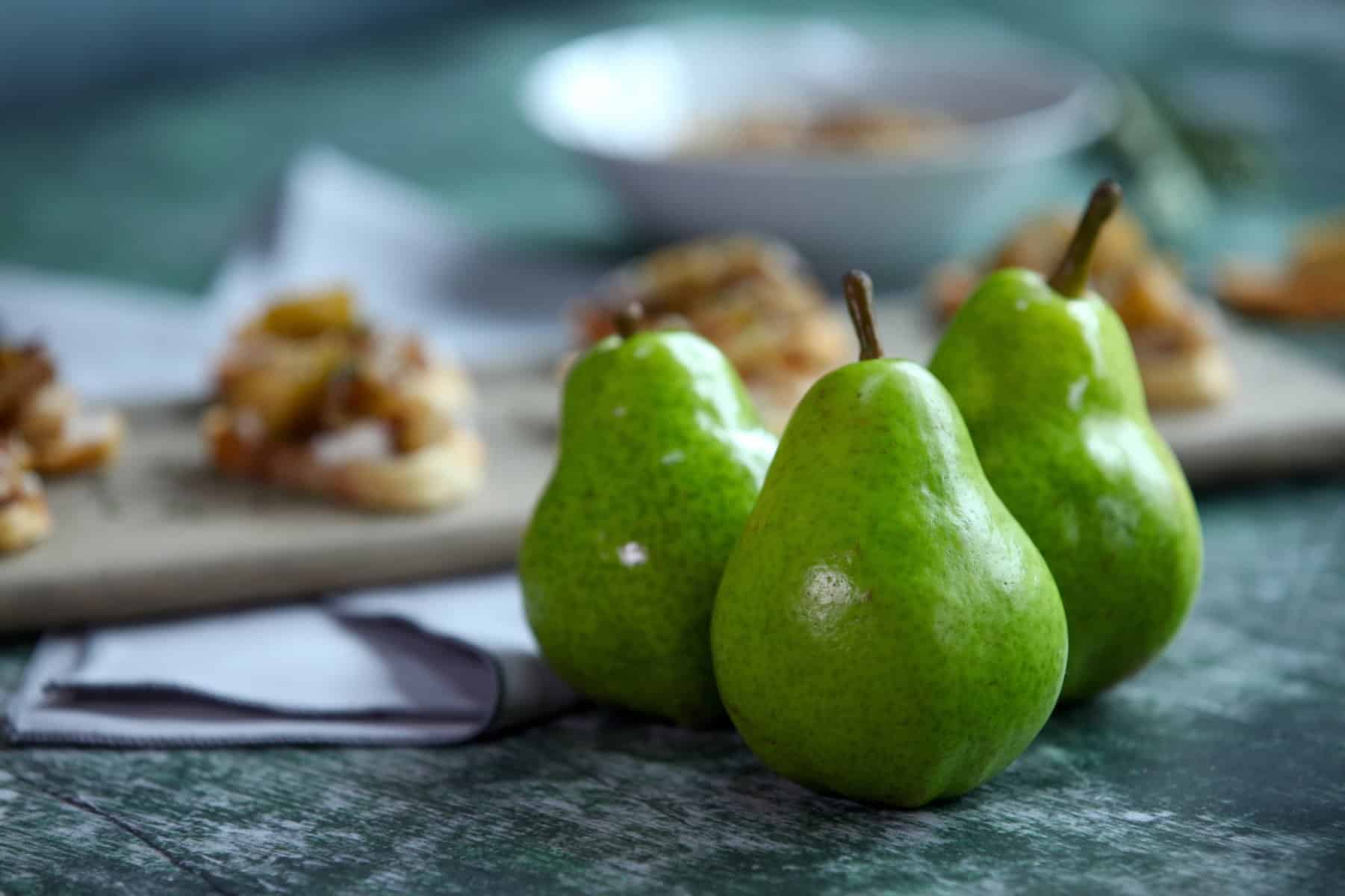
Pears aren't often marketed as "super foods" but pears are incredibly healthy and provide us with many beneficial vitamins and nutrients.
Here's one solution – eat a pear! Just one medium pear provides you with 21% of the recommended daily of fiber. Delicious, nutritious, and easy on the body...that's a win for us!According to Harvard Medical School, "American adults eat 10 to 15 grams of total fiber per day, while the USDA’s recommended daily amount for adults up to age 50 is 25 grams for women and 38 grams for men." Which means that as a whole, we need to be eating a lot more fiber-packed fruits and veggies.

If you're looking for more ways to eat pears, try substituting pears for others fruits in your favorite recipes! It might sound crazy, but if a recipe calls for apples, bananas, figs, grapes, mangoes, pumpkin, or squash try using pears instead. All of these fruits provide somewhat similar texture and sweetness...you may just find your new favorite recipe. However, traditionalists suggest eating pears with cheese, in salads and baked goods, or snacking by themselves.
Try these recipes using Starr Ranch Growers Pears: Red Anjou Pear & Walnut Galette, Roasted Bartlett Pear & Caramelized Onion Bruschetta, JUICI™ Apple & Pear Salad, or Blue Cheese Stuffed Starkrimson Pears.


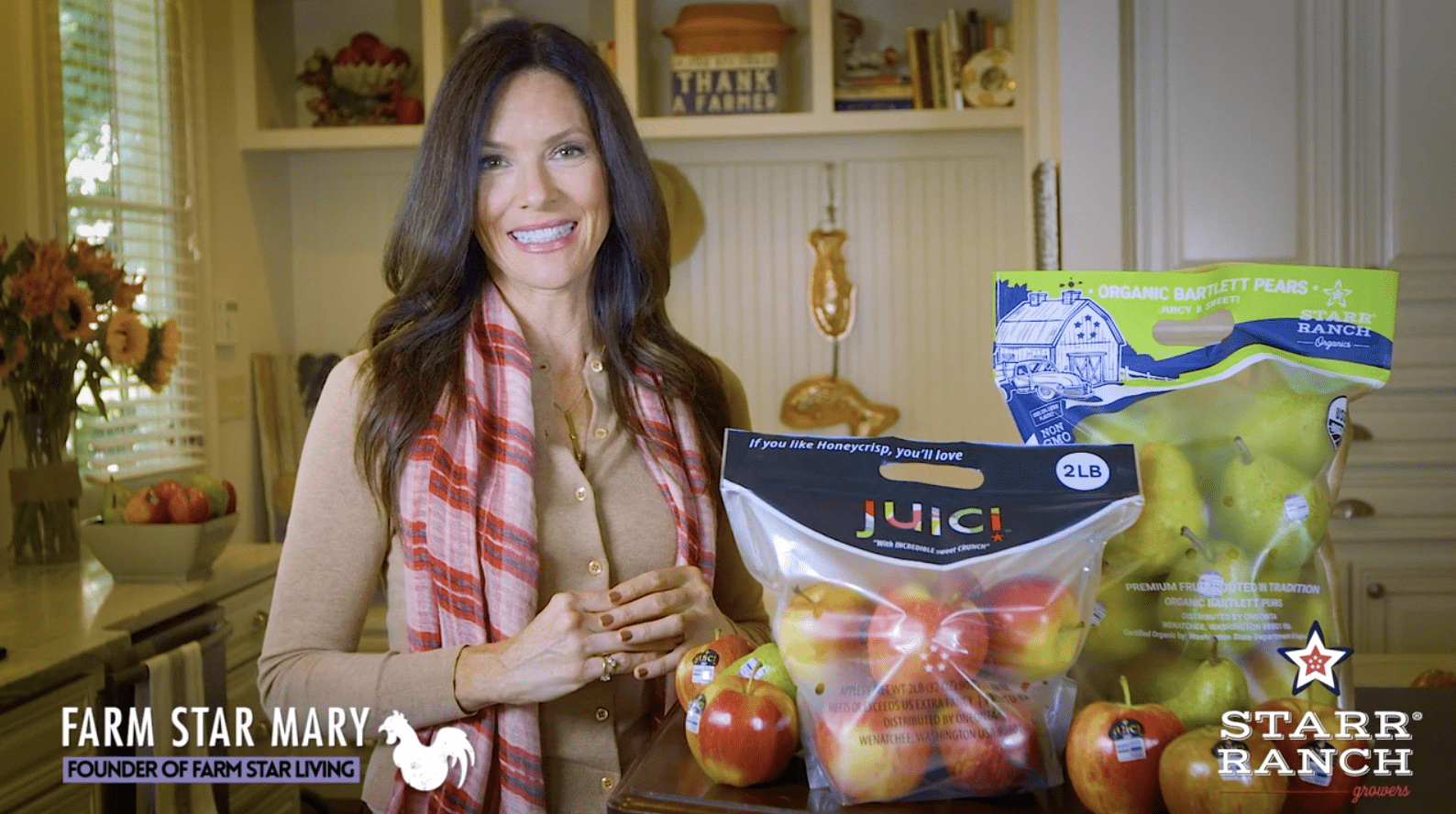
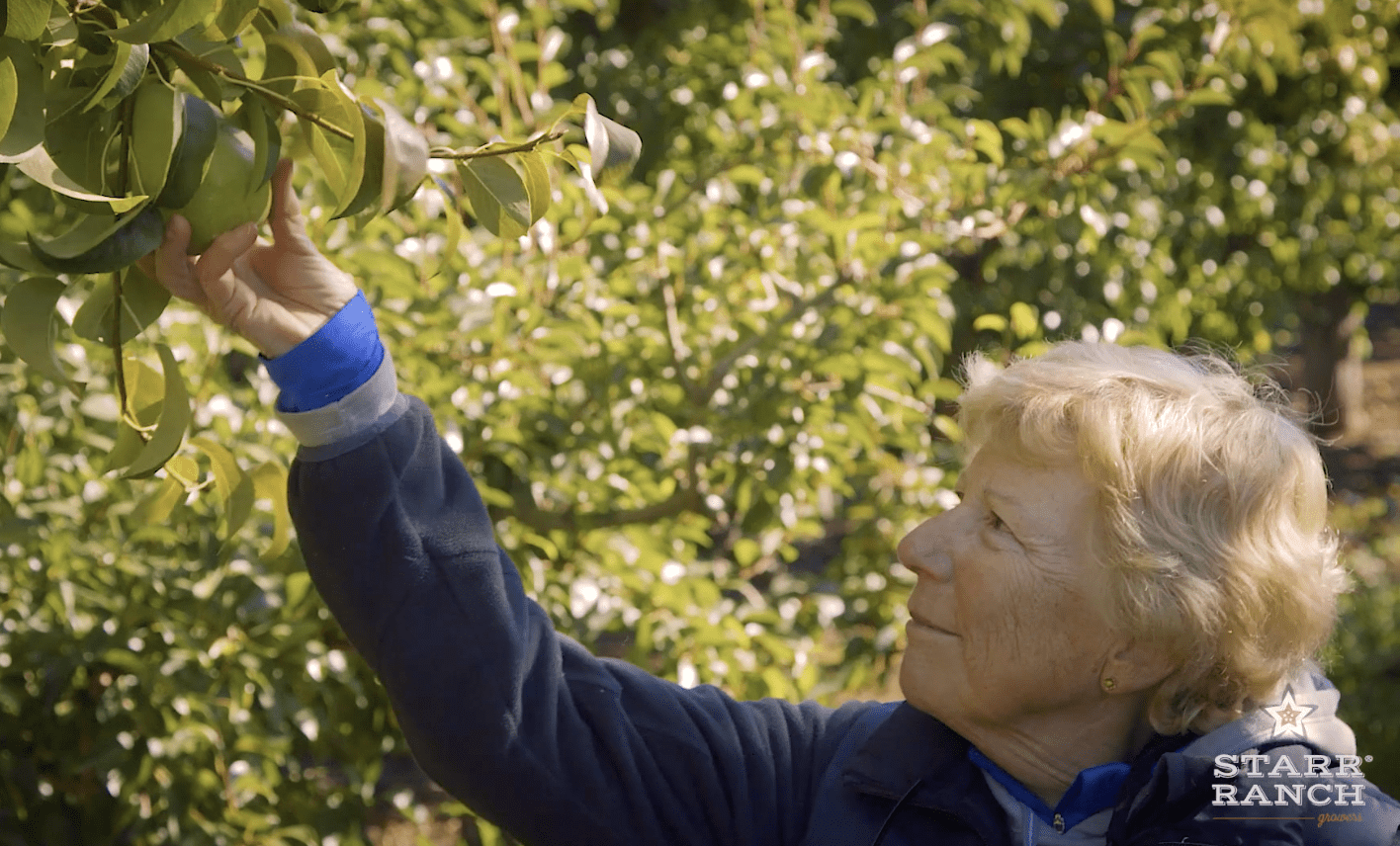
a delicious fruit. I love pears on cottage cheese
love these and so does the grandkids
Pears are yummy baked with crystallized ginger!
I love your pears! I live in Vancouver WA and travel to Hood River often. 😊
I wasn’t aware until now that pears have 10 different varieties to offer!
RIPE PEARS ARE MY FAVORITE!
It is good to know how to get pears ripe at home. I love them but have a harder time telling when they are ripe
So glad we could help, Marilyn! 🙂
I never knew that pears would be a viable option for many other fruits in recipes.
Aren’t pears just so great?!
Love pears made pear jelly was definitely delicious